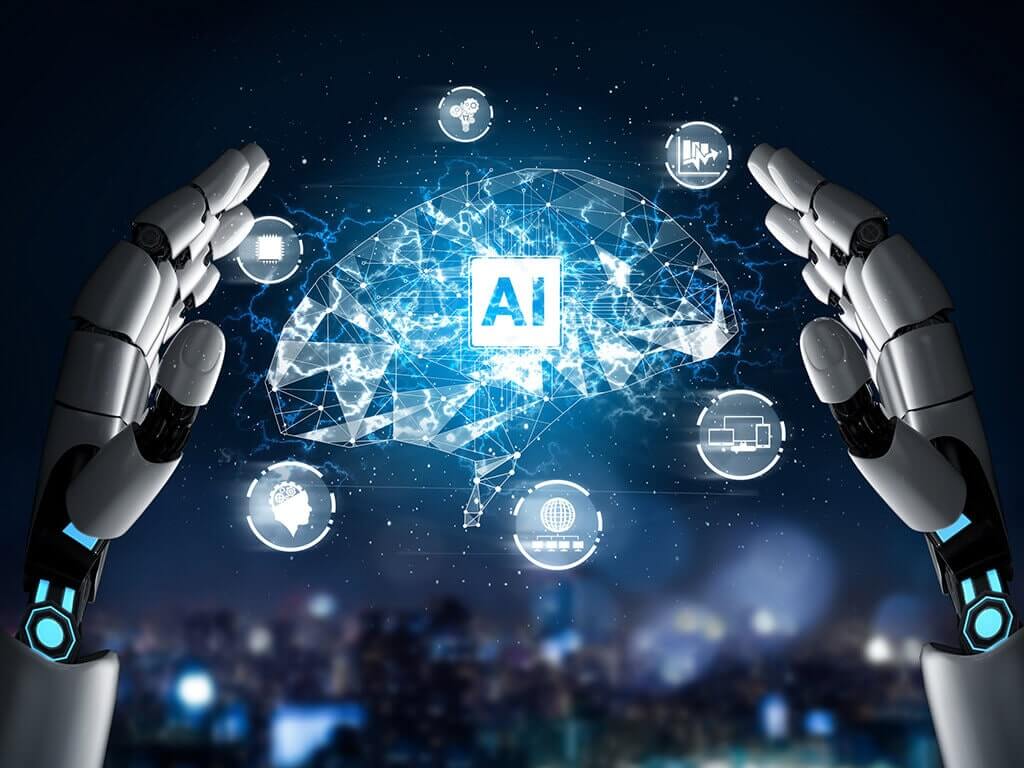Benefits of Democratizing AI for Businesses
Discover the benefits and how democratizing AI can drive innovation, enhance productivity, provide a competitive edge, and empower businesses

Making AI accessible to everyone is known as democratizing AI. In other words, open-source tools and datasets created by corporations like Microsoft and Google are made available so that anyone can create cutting-edge AI software. These tools and datasets require less AI expertise from the user. ‘Citizen data scientists’ have become more popular as a result of this.
Democratizing AI holds immense significance for businesses today. It enables increased innovation and competitiveness by unlocking new opportunities for experimentation and problem-solving. With access to advanced analytics, businesses can make data-driven decisions faster and more accurately. Democratizing AI also improves efficiency and productivity by automating tasks and optimizing workflows. It makes AI accessible to businesses of all sizes, fostering collaboration and empowering non-technical users. Moreover, it addresses ethical considerations, ensuring responsible AI usage. Overall, democratizing AI empowers businesses to thrive in the digital era and unlock the full potential of artificial intelligence.
Understanding Democratizing AI
AI democratization seeks to eliminate barriers to entry, such as high costs, technical complexity, and limited expertise, making AI accessible to businesses that may not have had the resources or expertise to adopt AI in the past. It ensures that AI technology is available to all, regardless of their size or industry.
Partnering with a reliable AI development agency further enhances AI democratization, opening up new opportunities for smaller businesses to compete with larger organizations. It levels the playing field and allows smaller businesses to leverage AI to improve operations, enhance customer experiences, and drive growth.
Benefits of Democratizing AI for business
- Increased innovation:
By democratizing AI, businesses of all sizes can access advanced AI technologies and algorithms, fostering innovation and enabling the development of new products, services, and business models. It encourages experimentation and exploration of AI-driven solutions.
- Enhanced productivity and efficiency:
Democratizing AI empowers businesses to automate repetitive tasks, streamline processes, and improve operational efficiency. AI-powered tools and algorithms can handle complex data analysis, decision-making, and customer interactions, freeing up human resources to focus on more strategic tasks.
- Competitive advantage:
Democratizing AI allows businesses to gain a competitive edge by leveraging AI technologies to understand and respond to customer needs more effectively. It enables businesses to analyze vast amounts of data, uncover insights, and make data-driven decisions, leading to improved customer experiences and better business outcomes.
- Cost-effectiveness:
Democratizing AI can make AI solutions more affordable and accessible, eliminating the need for significant upfront investments in infrastructure or expertise. Cloud-based AI services, open-source platforms, and AI-as-a-Service models contribute to cost-efficiency and affordability for businesses of all sizes.
- Empowered decision-making:
Democratizing AI equips businesses with powerful tools for data analysis, predictive modeling, and real-time insights. It enables businesses to make informed, data-driven decisions, identify trends and patterns, and respond quickly to market changes. AI-driven insights enhance decision-making capabilities and contribute to overall business success.
Understanding the concept of AI democratization and embracing its benefits can transform how businesses operate, innovate, and compete in the digital age. By exploring AI democratization and harnessing its potential, businesses can unlock new opportunities, drive growth, and create value for their customers and stakeholders.
Democratize AI: Making AI Accessible
Democratizing AI involves breaking down the barriers that have traditionally hindered businesses from adopting AI technologies. This includes addressing challenges such as high implementation costs, lack of expertise, and complex technical requirements. By making AI more accessible and affordable, businesses of all sizes can overcome these barriers and embrace AI to drive innovation and growth.
Democratizing AI also involves empowering non-technical users to leverage AI tools and technologies without requiring extensive coding or data science skills. User-friendly AI platforms, intuitive interfaces, and pre-built models enable individuals with varying levels of technical expertise to harness the power of AI. This opens opportunities for businesses to integrate AI into their operations, enhance decision-making, and improve customer experiences.
To democratize AI, it is crucial to expand education and training opportunities in AI. This includes providing resources, courses, and workshops that cater to individuals from diverse backgrounds and skill levels. By equipping more people with AI knowledge and skills, businesses can create a workforce that is prepared to leverage AI technologies effectively and drive innovation in their respective fields.
Democratizing Data Science
Democratizing data science involves empowering businesses to make informed decisions based on data-driven insights. By providing businesses with access to powerful data analysis tools and techniques, they can extract valuable insights from their data and use them to drive strategic decision-making. It also ensures that businesses of all sizes can leverage the power of data to optimize their operations, improve customer experiences, and gain a competitive edge.
It is also inclusive of making data science tools and techniques accessible to individuals without extensive technical expertise. This includes developing user-friendly data analysis platforms, data visualization tools, and automated machine learning solutions that enable users to explore and analyze data without the need for advanced coding or statistical knowledge. By democratizing access to data science tools, businesses can empower their teams to work with data more effectively and uncover valuable insights.
Democratizing data science goes beyond providing tools; it also involves fostering a collaborative environment and democratizing access to data. This includes encouraging cross-functional collaboration, knowledge sharing, and providing access to relevant data sources within the organization. By promoting collaboration and data sharing, businesses can harness the collective expertise of their teams and unlock the full potential of their data assets.
AI-enabled Data Democratization
AI-enabled data democratization aims to make valuable data resources more accessible to a wider range of users within an organization. This involves breaking down data silos and implementing strategies to ensure that relevant data is easily accessible to those who need it. By democratizing access to data, businesses can empower their teams to make data-driven decisions and derive insights from a broader range of data sources.
AI plays a crucial role in democratizing data by enabling advanced data analysis and interpretation. By leveraging AI algorithms and techniques, businesses can extract meaningful insights from large and complex datasets more efficiently. AI-powered tools can automate data processing, identify patterns, and make predictions, allowing users to gain valuable insights without requiring extensive data science expertise.
While democratizing data access is important, it is equally crucial to ensure proper data governance and security. Businesses must establish robust data governance frameworks and implement security measures to protect sensitive data. AI can also assist in enhancing data governance by automating data classification, enforcing data privacy regulations, and monitoring data access and usage to maintain data integrity and compliance.
Promoting Equitable AI
Addressing biases and fairness in AI algorithms
- Implementing bias detection and mitigation techniques in AI algorithms to ensure fairness and prevent discrimination.
- Regularly auditing AI systems for biases and taking corrective measures to promote equal treatment and opportunities for all.
Ensuring inclusivity and diversity in AI applications
- Promoting diversity in AI development teams to prevent the perpetuation of biases and ensure the development of inclusive AI applications.
- Ensuring that AI systems are trained on diverse datasets that accurately represent the target user groups to avoid biased outcomes.
Ethical considerations in AI democratization
- Upholding ethical principles in AI development and deployment, such as transparency, accountability, and privacy protection.
- Establishing clear guidelines and standards for the responsible use of AI technologies to mitigate potential risks and ensure ethical practices.
Promoting equitable AI is crucial in the democratization process to avoid reinforcing existing biases and inequalities. By addressing biases and fairness in AI algorithms, ensuring inclusivity and diversity in AI applications, and upholding ethical considerations, businesses can promote the development and deployment of AI technologies that benefit all individuals and communities.
Machine Learning Democratization and Generative AI
Making machine learning accessible to businesses
- Developing user-friendly machine learning platforms and tools that enable businesses to leverage machine learning capabilities without requiring extensive technical expertise.
- Offering pre-trained machine learning models and APIs that can be easily integrated into existing systems, simplifying the adoption of machine learning for businesses.
Exploring the potential of generative AI in democratization efforts
- Harnessing the power of generative AI to automate and enhance creative processes, such as generating content, artwork, or design variations.
- Enabling businesses to leverage generative AI for tasks like natural language processing, speech synthesis, and image generation, expanding the possibilities for innovation and creativity.
Machine learning democratization and the utilization of generative AI open up new avenues for businesses to leverage advanced AI capabilities. By making machine learning accessible and exploring the potential of generative AI, businesses can unlock new opportunities for automation, creativity, and innovation, leading to enhanced productivity and competitive advantage.
Responsible AI and AI Governance
In the context of AI democratization, it is crucial to establish guidelines and frameworks for responsible AI usage. This involves defining ethical principles and guidelines that govern the development, deployment, and use of AI technologies, ensuring their responsible and ethical application. Transparency, explainability, and accountability are emphasized to address potential biases, risks, and unintended consequences.
Additionally, implementing AI governance policies and regulations is essential. This includes developing and enforcing policies that govern the ethical and responsible use of AI, addressing data privacy, security, and algorithmic fairness. Oversight bodies or regulatory frameworks may be established to monitor and ensure compliance with these AI governance policies.
By prioritizing responsible AI and implementing effective governance, businesses can foster trust, mitigate risks, and ensure the responsible and beneficial use of AI technologies for the betterment of society.
AI Transparency and Sustainability
Ensuring transparency in AI algorithms and decision-making processes is crucial in AI democratization efforts. By making AI algorithms transparent and understandable, businesses can build trust with users and stakeholders. Transparency allows for the identification of biases and ensures accountability in AI-driven decision-making.
Harnessing AI for sustainable business practices and social impact is another key aspect of AI democratization. Businesses can leverage AI technologies to optimize resource usage, reduce waste, and make data-driven decisions that promote environmental sustainability. AI can also be used to address social challenges, such as healthcare accessibility or poverty reduction, by enabling more efficient and equitable solutions.
By prioritizing AI transparency and sustainability, businesses can foster trust, accountability, and positive societal impact through their AI initiatives.
Parting thoughts
Democratizing AI offers numerous benefits, including increased innovation, enhanced productivity and efficiency, competitive advantage, cost-effectiveness, and empowered decision-making. It enables businesses to access advanced AI technologies, automate tasks, analyze data, and make informed decisions, leading to improved outcomes and customer experiences.
Encouragement for businesses to embrace AI democratization for future success: Embracing AI democratization is essential for businesses to stay competitive and thrive in the digital age. By breaking down barriers to entry, making AI accessible to non-technical users, promoting data science democratization, and ensuring responsible AI governance, businesses can unlock the transformative power of AI. It is a call to businesses to embrace AI democratization for future success, innovation, and sustainable growth.
In conclusion, democratizing AI holds immense potential for businesses. It empowers them with advanced technologies, data-driven insights, and the ability to innovate and compete effectively. By embracing AI democratization, businesses can harness the power of AI to drive success, make informed decisions, and create value for their customers and stakeholders.




